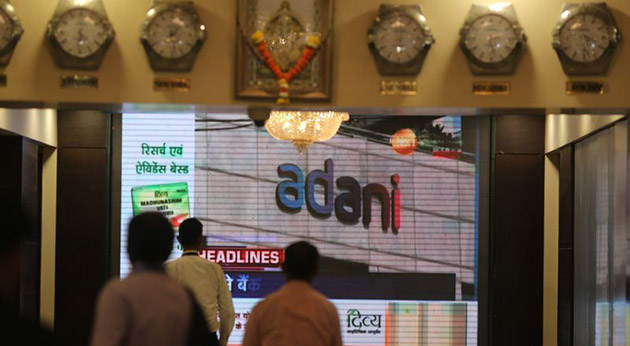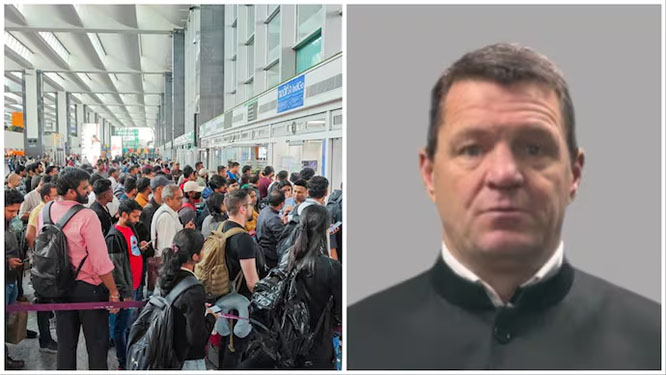
Mumbai, Feb 3: The brutal stock rout in Gautam Adani’s companies continued Friday, an indication that the billionaire needs to do more to restore confidence in his conglomerate’s financial health after accusations of fraud by Hindenburg Research.
The group’s 10 stocks all fell in early Mumbai trading, with $120 billion, or more than half of their combined value, erased since the US-based short seller last week claimed that offshore shell entities were used to inflate Adani group’s revenues and manipulate stock prices. Flagship Adani Enterprises Ltd. sank as much as 25%, taking its decline to 66% in seven trading sessions.
The continued slump reflects worries about Adani’s access to funding after the tycoon scrapped a key stock offering this week, and as long-held concerns about the group’s debt load were propelled onto the global stage by Hindenburg. The embattled tycoon is in talks with creditors to prepay some loans backed by pledged shares, as some banks stopped accepting the securities of the group that spans from ports to energy as collateral in client trades.
“Clearing of pledges may not help. Now the only point is investors are not just interested in clearing pledges, they want concrete plans and actions,” said Sameer Kalra, founder of Target Investing in Mumbai. “The use of every rupee on balance sheet is critical now. There are a lot of stakeholders.”
The crisis of confidence in Adani has become a national issue with opposition lawmakers disrupting parliament on Thursday to demand answers from Prime Minister Narendra Modi’s government, given how closely his interests are intertwined with the nation’s growth plans. Government officials have sought to downplay the impact.
Hindenburg Research last week accused the Adani group of “brazen” market manipulation and accounting fraud, claiming that a web of Adani-family controlled offshore shell entities in tax havens were used to facilitate corruption, money laundering and taxpayer theft.
The conglomerate has repeatedly denied the allegations, called the report “bogus,” and threatened legal action. Adani gave a video speech on Thursday stating that the group’s balance sheet is healthy.
The conglomerate has repeatedly denied the allegations, called the report “bogus,” and threatened legal action. Adani gave a video speech on Thursday stating that the group’s balance sheet is healthy.
In a reprieve for Adani, who has seen his personal fortune drop by $58 billion since the allegations, the group’s bonds rallied Friday after Goldman Sachs Group Inc. and JPMorgan Chase & Co. told some clients that the debt can offer value due to the strength of certain assets. All 15 dollar debt securities advanced, partly helped by news that Adani Ports & Special Economic Zone Ltd. has made a coupon payment on schedule.
Meanwhile, banks have been tightening scruty on Adani companies’ securities. Units of Credit Suisse Group AG and Citigroup Inc. earlier this week stopped accepting some securities issued by Adani’s companies as collateral for margin loans to wealthy clients.
Separately, Lord Jo Johnson, the former Conservative minister and brother of former UK prime minister Boris Johnson, has resigned as a director of Elara Capital, a London-based firm embroiled in the controversy at the Adani empire, the Financial Times reported. The firm was one of the 10 bookrunners on the record share sale that Adani Enterprises abruptly abandoned earlier this week.
Adani’s proposed loan prepayment would see lenders release some of the stock in the group’s companies that was pledged as collateral, Bloomberg News reported, citing a person with knowledge of the matter. The Indian group hasn’t faced margin calls on these pledges and is seeking the prepayment proactively, the person added.
“Markets are looking for clarity on allegations and are likely not calmed via clearing of pledges,” said Nitin Chanduka, a strategist with Bloomberg Intelligence.






Comments
Add new comment